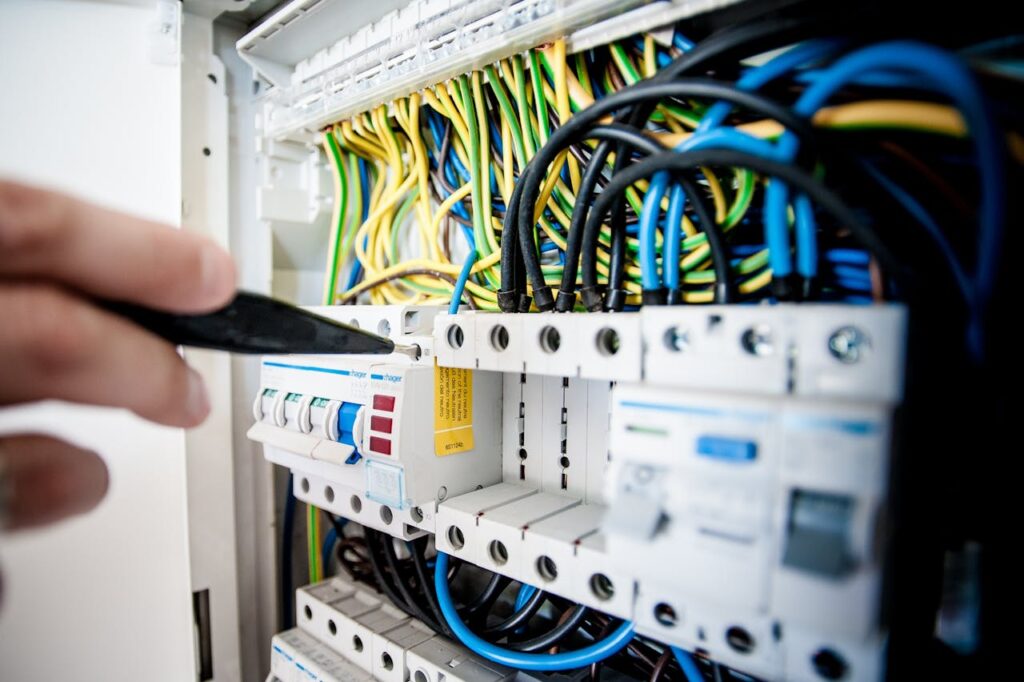Becoming a licensed electrician in Georgia is a rewarding and fulfilling career choice. With the increasing demand for skilled tradespeople, electricians play a crucial role in residential and commercial construction, maintenance, and repair. However, before you can start working as an electrician, it’s essential to understand the steps required to achieve certification. This guide will walk you through the necessary steps to becoming a licensed electrician in Georgia, from education to licensing, and how to prepare for the exam. One of the key components of your journey will be finding the right preparation courses, and that’s where AtHomePrep Services can be a game changer.
Table of Contents
A Step-by-Step Guide to Becoming a Licensed Electrician in Georgia
Step 1: Meet the Basic Eligibility Requirements
Before you can apply for the electrician certification in Georgia, you need to meet some basic eligibility requirements. The first requirement is age—applicants must be at least 20 years old. Additionally, you should have a high school diploma or GED. If you meet these requirements, you can proceed to the next step, which is gaining the necessary education and training.
Step 2: Complete an Electrical Training Program
Once you meet the basic requirements, the next step is to complete a formal electrical training program. Georgia requires that you complete a minimum of 4,000 hours of hands-on apprenticeship work. This apprenticeship typically lasts about 2 years and is done under the supervision of a licensed electrician. In addition to on-the-job training, many apprenticeships also involve classroom instruction, which covers essential electrical concepts, including electrical theory, safety protocols, and local building codes.
In Georgia, apprenticeships are often offered through trade schools, unions, or directly with contractors. It’s crucial to choose an accredited program to ensure that your training meets the state’s standards.
Step 3: Gain Work Experience

As part of your apprenticeship, you will gain valuable on-the-job experience. During this phase, you will work directly under the supervision of a licensed electrician, performing tasks such as wiring, troubleshooting electrical systems, and installing electrical components. Gaining this real-world experience is vital because it helps you develop the hands-on skills you need to pass the licensing exam and succeed in your career.
Also Read
The state of Georgia also requires you to accumulate a set number of hours, typically around 8,000 hours, before you can become eligible to take the licensing exam. This experience is not just about hours logged; it’s also about building competency in the field and understanding the daily responsibilities of an electrician.
Step 4: Take the Licensing Exam
Once you have completed your apprenticeship and gained enough experience, it’s time to take the electrician licensing exam. The exam is designed to test your knowledge of electrical theory, safety procedures, and local electrical codes. It also includes practical questions that assess your ability to handle real-world electrical problems.
To ensure that you are fully prepared for the exam, it’s crucial to enroll in an exam prep course. AtHomePrep Services offers comprehensive exam preparation materials that can help you sharpen your knowledge and increase your chances of passing the exam. These services provide access to study guides, practice exams, and expert resources, ensuring you are fully equipped to succeed.
Step 5: Obtain Your License
After successfully passing the exam, you will receive your electrician license. At this point, you are legally allowed to work as a licensed electrician in Georgia. The state issues two types of licenses for electricians: the Journeyman Electrician License and the Master Electrician License.
The journeyman license allows you to work under the supervision of a master electrician, while the master electrician license is for those who want to run their own electrical contracting business. To obtain a master electrician license, you must have additional years of experience and pass a more advanced exam.
Step 6: Maintain Your License
Once you become a licensed electrician, your journey doesn’t end there. Georgia requires electricians to renew their licenses every 2 years. This renewal process often involves completing continuing education courses to stay updated on the latest electrical codes and safety standards. Many electricians choose to take advantage of online courses and workshops, making it easier to maintain their skills and keep their knowledge up to date.
AtHomePrep Services also offers resources for continuing education, which can be incredibly helpful as you work to meet the state’s renewal requirements. These services help ensure that you remain compliant with Georgia’s electrical regulations and continue to provide safe, high-quality work to your clients.
Conclusion
Becoming a licensed electrician in Georgia involves several key steps, including meeting basic eligibility requirements and passing the licensing exam. The journey can be challenging, but with the proper education, work experience, and exam preparation, you can successfully become a licensed professional in the field. Throughout this process, AtHomePrep Services can play a crucial role in helping you prepare for the licensing exam and stay ahead of industry standards. Whether you’re just starting or looking to maintain your license, investing in the right resources will set you up for long-term success in Georgia’s thriving electrical industry.






